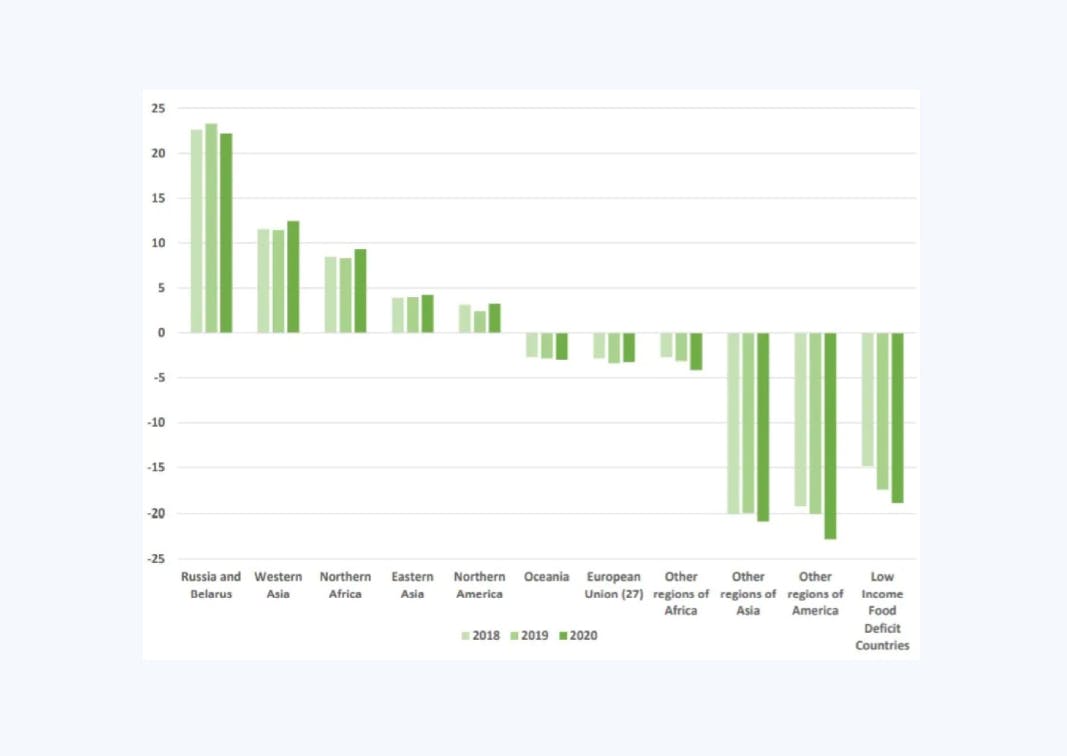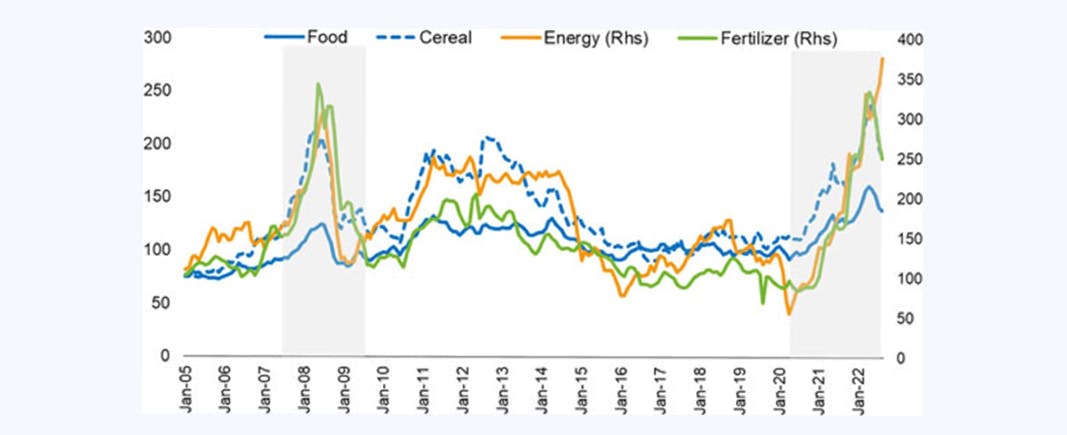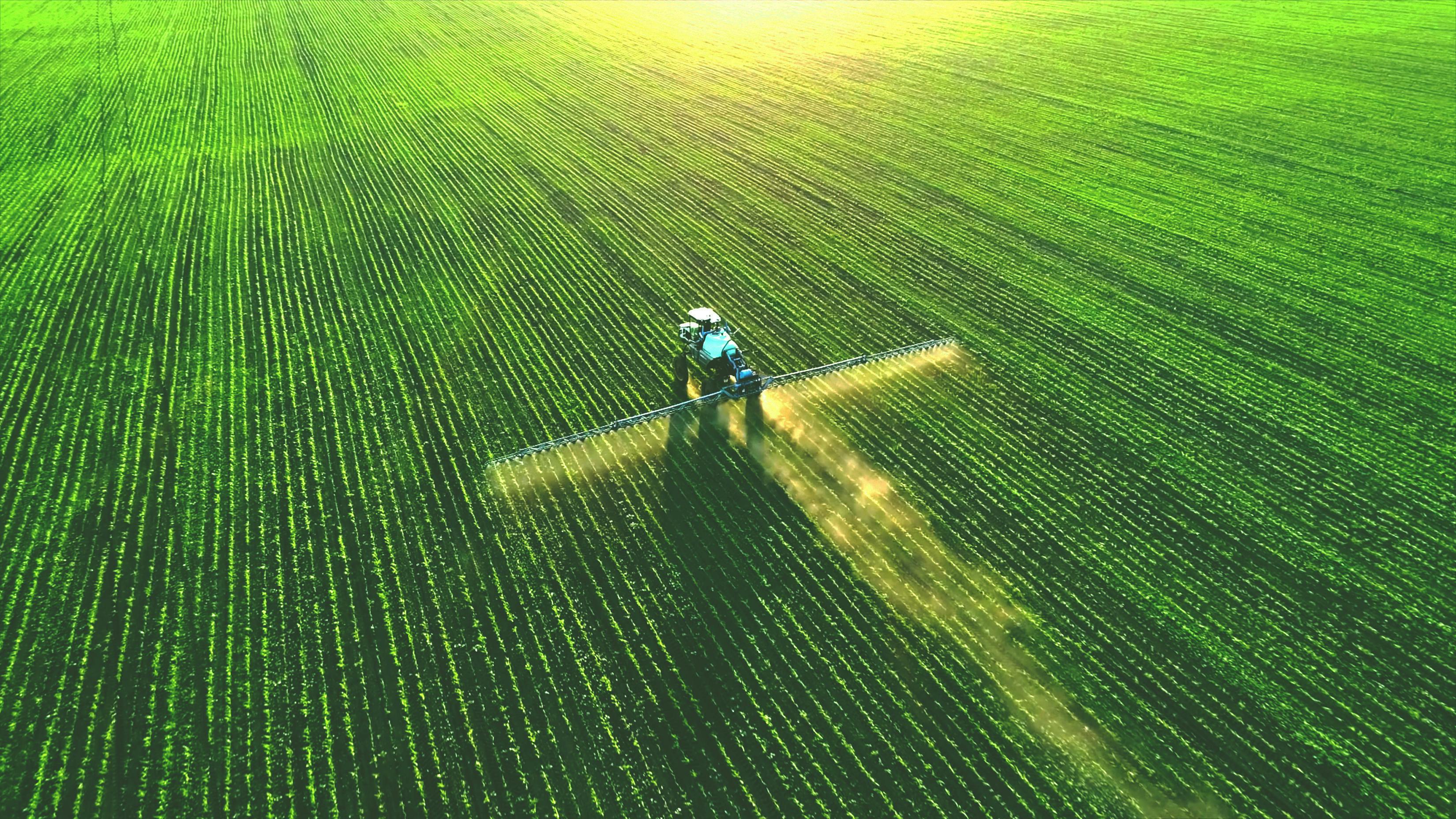The Commission’s Communication on Fertilisers:
The constant tug of war between short-term policy responses and long-term strategies must cease!
Earlier this month, OECD Secretary General Mathias Cormann urged governments to move public spending away from inefficient subsidies in the farming and food sector. Much of this support is inequitably distributed, distortive and environmentally harmful, according to the OECD. Therefore, agri-food subsidies should be fully aligned with environmental targets to boost sustainable productivity. The European Commission’s Communication on Fertilisers, released on 9 November, shows that the EU is struggling with this objective.
The global fertiliser crisis: What’s the issue?
International fertiliser prices have been on the rise since 2020, soaring significantly in mid-2021. However, since the beginning of the Russian war, the fertiliser market has seen even more critical shifts. Russia is one of the world’s largest suppliers of potash, phosphate and nitrogen fertilisers (13% of total production) and played a pivotal role in the international market (15% of global fertilisers exports). As Russian exports of fertilisers have fallen by 7% in the first half of 2022, international markets’ capacity to ensure adequate and affordable supply globally has been severely undermined. The reduction of Russian fertilisers exports along with the unavailability of Ukrainian exports reflected negatively on food prices globally, affecting import-dependent countries disproportionately more. To address this global food crisis expected to fuel conflict and instability, a series of international initiatives has been launched (e.g., IMF’s food shock window, Global Food Security Summit's International Food and Agriculture Resilience Mission – FARM, G7’s Global Alliance for Food Security).
The impact of the high energy prices is also felt strongly in the EU. The energy crises made internal fertiliser production unprofitable and resulted in partial production reductions (up to -70% in August). Consequently, the price of nitrogen fertilisers in the EU jumped up by 149% year-on-year in September 2022, putting EU farmers into trouble. EU imports of nitrogen fertilisers have also increased by 19% because of this dire situation.

FAOSTAT Net trade of fertilisers expressed in million tonnes of nutrients (2022)
The UN has recently warned that, if not properly addressed, this fertiliser crisis will pave the way to global food shortages. The IMF stated that the world is facing a global food crisis of a magnitude comparable to the one of the 2007-08 crisis. Nevertheless, the extent to which market intransparency impacted fertiliser prices and availability remains unclear.

IMF Primary Commodity Price Indices, 2005-2022 (data until 15 Sept 2022) – (Indices:, 2016=100).
While the EU puts efforts into tackling the fertiliser price crisis, another major challenge awaits our agri-food system: the environmental one. Currently, EU agri-food production largely exceeds the planetary boundaries for safe fertiliser use. Misuse due to over- or wrong application of fertilisers not only leads to 50-60% of nutrient loss, but also adds to the EU’s ammonia emissions of which 90% are caused by agriculture – 20% of these by mineral fertiliser use alone. In response to these emerging issues, the European Commission has recently published a Communication on the availability and affordability of fertilisers.
Criticism from all sides
The Communication, initially referred to as a strategy, describes a set of domestic and international actions aimed at easing the ongoing global mineral fertiliser and food crisis. Domestic actions seek to improve market transparency, to promote the EU’s open strategic autonomy, to increase sustainability in the sector, as well as to offer domestic financial support measures. These support measures help mitigate the short-term impact of input price volatilities on farmers and fertiliser producers.
The Commission plan has been slammed from all sides by EU stakeholders. Several MEPs along with the farmers’ community criticised it for its heavy reliance on the CAP National Strategic Plans. In their views, the Commission is shifting the responsibility to Member States with the risk of disrupting the internal market. Representatives of the fertiliser industry would have liked to see a plan that provides for more predictability. A criticism that most seem to subscribe to – with different thoughts in mind, though – is that the Communication is not innovative enough, simply repeating short- and long-term initiatives already in place.
Subsidies for the better or the worse?
Just a few days after the release of the Commission Communication and ahead of the G20 Summit, WTO and FAO jointly published a mapping exercise. This exercise informed G20 leaders on the pressing food security challenges that call for a collective approach. In addition, the mapping work suggests both short- and medium-term policy responses. The document maps the status of the fertiliser market and presents an overview of fertiliser measures taken by 19 WTO members. Even if the Commission and the WTO/FAO reports are largely aligned in terms of next steps to be taken at the international level, differences arise regarding behind-the-border measures. Notably, the Commission reported amendments to the Temporary Framework for State Aid, while proposing to make expedient use of other fundings to support both farmers and fertiliser producers in the EU. According to WTO/FAO, subsidies to stabilise the domestic affordability of fertilisers put additional upward pressure on world prices and risk, in the current situation, to reduce access to fertilisers for other parts of the world.
We cannot ignore the fact that these measures are also fostering a production system based on the (extensive) use of mineral fertilisers which harms our soils, water systems, and air – a system the EU has committed itself to overcome. The Commission’s Communication (and all debate around it) shows, once again, the struggle of aligning short-term action with long-term sustainability thinking. Strikingly, the Communication has been criticised for both. On the one hand, for not sufficiently supporting farmers and falling short of facilitating availability and affordability of fertilisers and relevant inputs in the short term. On the other hand, for not being transformative enough in terms of innovating fertilisers’ production and consumption.
The need for a coherent food system policy
This makes clear: The status quo cannot be maintained. Financial support for vulnerable groups in times of crises is necessary and justified – but it should not be to the detriment of farmers and producers in the developing world. Subsidies should also not feed into the pockets of those that might even have increased profits during the crises – as can be said at least for some parts of the fertiliser industry.
Maintaining current practices will only lead us from one crisis to the next, trapping the EU in this vicious cycle of short-term interventions incoherent with long-term sustainability objectives that leave no actor satisfied. This circle needs to be broken up: all relevant stakeholders should focus their efforts in the coming months on delivering an effective Integrated Nutrient Management Action Plan. This initiative, designed to help reduce nutrient losses by at least 50%, should focus particularly on soil restoration. The Action Plan, initially planned for Q4 2022, should have already fed into the Communication on Fertilisers, bridging these notable discrepancies between short- and long-term approaches to food production.
Additional effort is required to develop a comprehensive, systemic and integrative Sustainable Food System Framework Legislation (SFSF). The SFSF must define and bring together all the actors within the food system (from fertilisers producers to consumers). More importantly, it should define coherent objectives and principles to guide all food and agriculture-related policies in line with the European Green Deal. The EU urgently needs a legislative framework which makes sustainable production the profitable choice.




